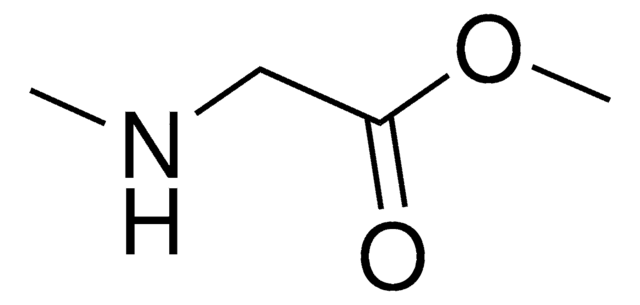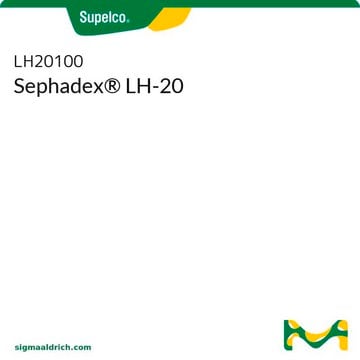84570
Sarcosine methyl ester hydrochloride
≥97.0% (T)
Synonym(s):
N-Methylglycine methyl ester hydrochloride
About This Item
Recommended Products
Quality Level
Assay
≥97.0% (T)
form
powder
reaction suitability
reaction type: solution phase peptide synthesis
impurities
≤3% sarcosine hydrochloride
mp
117-119 °C (lit.)
application(s)
peptide synthesis
SMILES string
Cl.CNCC(=O)OC
InChI
1S/C4H9NO2.ClH/c1-5-3-4(6)7-2;/h5H,3H2,1-2H3;1H
InChI key
HQZMRJBVCVYVQA-UHFFFAOYSA-N
Storage Class Code
11 - Combustible Solids
WGK
WGK 3
Flash Point(F)
Not applicable
Flash Point(C)
Not applicable
Personal Protective Equipment
Certificates of Analysis (COA)
Search for Certificates of Analysis (COA) by entering the products Lot/Batch Number. Lot and Batch Numbers can be found on a product’s label following the words ‘Lot’ or ‘Batch’.
Already Own This Product?
Find documentation for the products that you have recently purchased in the Document Library.
Our team of scientists has experience in all areas of research including Life Science, Material Science, Chemical Synthesis, Chromatography, Analytical and many others.
Contact Technical Service






